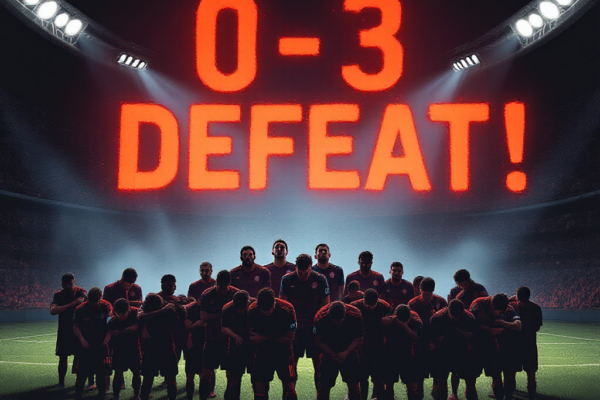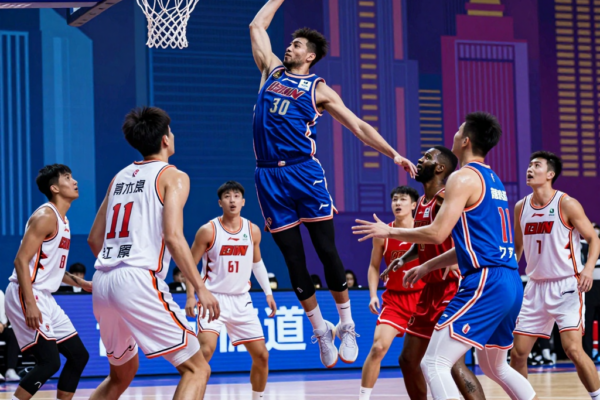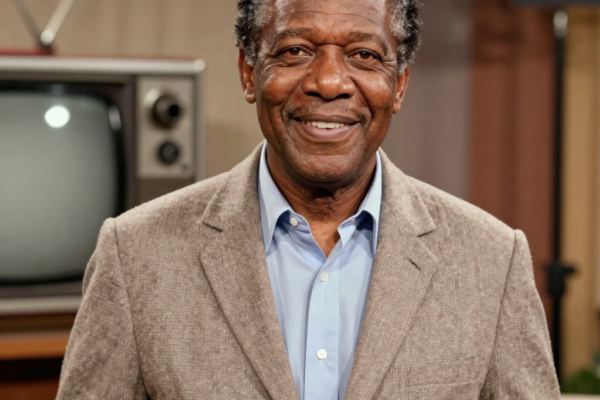After Impeachment, the 2025 South Korean Presidential Election Decides the Nation’s Fate
June 3, 2025—If the future of a nation hinges on a single vote, what emotions are filling the hearts of South Korean voters at this very moment? Following the impeachment of President Yoon Suk-yeol, the political landscape has been thrown into turmoil. This presidential election is more than just a contest—it is a monumental crossroads that will shape the destiny of the country.
The 2025 presidential election, set to open a new chapter in South Korea’s political history, is unfolding under unprecedented circumstances. The early election triggered by the impeachment of former President Yoon Suk-yeol presents the public with a profound dilemma and a pivotal choice.
Key features of this election include:
A Choice After Political Upheaval: In the wake of an unprecedented constitutional crisis marked by impeachment, voters are deeply contemplating national stability and the future direction of the country.
Contrasting Candidate Strategies: Candidates from both ruling and opposition parties are vying for voters’ hearts through markedly different tactics. Lee Jae-myung adopts a defensive stance, while Kim Moon-soo campaigns with unwavering confidence, creating a striking contrast.
The Critical Role of Regional Sentiment: The voting preferences in the Daegu-Gyeongbuk (PK) region have emerged as a decisive factor likely to sway the election’s outcome.
A Decline in Debate Culture: Unlike the dignified policy debates of the past, the current election is dominated by personal attacks and legal battles.
Heightened Voter Responsibility: Given the election’s context post-impeachment, voters feel an intensified burden to make choices with caution and accountability.
The 2025 South Korean presidential election transcends a mere change of power—it is a decisive moment that will chart the nation’s future course. As individual choices collectively open a new path for South Korea, this historic moment calls for deep reflection on what kind of leadership to endorse and what future to envision.
The 2025 South Korean Presidential Election: A Strategic Battle Between Shield and Spear
Lee Jae-myung’s Defensive Campaign vs. Kim Moon-soo’s Competency-Driven Offense! The strategies of these two leading candidates in the 2025 South Korean presidential race sharply contrast. How will these completely different approaches sway voters, especially in the crucial Daegu-Gyeongbuk (PK) region?
Lee Jae-myung’s ‘Shield’ Strategy
Candidate Lee Jae-myung maintains a defensive stance with a policy-focused campaign, presenting a stable approach aimed at the ruling party’s continuation in power. His strategy highlights:
- Emphasis on policy specificity
- Spotlighting past achievements
- Minimizing attacks on opponents
This defensive strategy may appeal to voters seeking proven leadership but could seem insufficient to those yearning for change.
Kim Moon-soo’s ‘Spear’ Strategy
In contrast, candidate Kim Moon-soo adopts an aggressive approach, prominently showcasing his ability and execution skills. His method involves:
- Highlighting innate capabilities
- Emphasizing policy implementation
- Sending messages of change and innovation
This offensive strategy could captivate voters eager for new leadership but may appear risky to those who prefer stability.
The Pulse of the PK Region
Voters in the Daegu-Gyeongbuk area are poised to be a significant variable in the 2025 presidential election. Known for its traditionally conservative leaning, the direction of this region’s support will be closely watched.
- Assessing the specificity and feasibility of policies
- Verifying candidate trustworthiness and ethics
- Carefully examining regional development pledges
Which Side Are You On?
If you were a resident of this area, which candidate’s strategy feels more convincing? The defensive yet stable ‘Shield’ or the aggressive but change-promising ‘Spear’?
The 2025 South Korean presidential election is more than just a showdown between individuals; it’s a pivotal decision shaping the nation’s future trajectory. Watching how each candidate’s strategy moves voters’ hearts—and what political transformations this will bring—is undeniably fascinating.
The Vanished Policy Debates, Only Shadows of Negativity and Legal Battles Remain: The Current State of South Korea’s 2025 Presidential Election
The once dignified political debates have become a reality lost in the 2025 South Korean presidential election. Marred by courtroom accusations, this election has regrettably shifted focus from policy discussions to allegations and defamation dominating the headlines. Amidst this, citizens find themselves longing for the graceful debates between Roh Moo-hyun and Lee Hoi-chang in 2002. Why does this cycle keep repeating?
Only Three Debates Held, Policy Discussions Disappear
What captures attention in the 2025 election is not the candidates’ policy debates but their legal confrontations. The minimum three debates mandated by law were held, yet these sessions concentrated heavily on disparaging opponents. In-depth discussions on policies were barely visible, replaced instead by relentless attacks on each other’s weaknesses.
Election Battles Escalate into Courtrooms
The battles have spilled over from debate halls into courtrooms, deepening voter disappointment. The Democratic Party filed a lawsuit accusing candidate Lee Jun-seok of “spreading false information,” while the Reform New Party counter-sued over remarks related to candidate Lee Jae-myung’s eldest son, fueling an endless cycle of legal disputes. Such turmoil underscores the absence of genuine policy debate even more starkly.
Nostalgia for the 2002 Roh Moo-hyun–Lee Hoi-chang Debates
In this disheartening climate, the public reminisces about past dignified debates. The 12 million views on YouTube of the 2002 Roh Moo-hyun–Lee Hoi-chang debates are telling. Those debates featured serious discussions on substantive issues like relocating the administrative capital, standing in sharp contrast to today’s debate culture.
A Crisis of Voters’ Right to Know and Democracy
This phenomenon in the 2025 South Korean presidential election gravely infringes on voters’ right to be informed. An election process filled only with negative attacks and legal duels, absent meaningful policy analysis, shakes the foundation of democracy. Voters lose the chance to properly compare candidates’ visions and platforms, making it difficult to make well-informed choices.
Through this election, we are reminded of the urgent need to improve political culture and elevate the quality of debates. In the remaining days, we hope candidates will engage in policy-centered discussions and offer voters genuine opportunities to decide. The 2025 South Korean presidential election must become a serious forum for the nation’s future—not merely a contest for power.
Voters’ Choice: The 2025 South Korean Presidential Election and the Value of Trust
The voices of voters demanding “promises without lies” are echoing louder than ever. The call from Gyeonggi Ilbo—”Your one vote shapes the future of South Korea!”—reminds us once again of the critical importance of the 2025 South Korean presidential election. In an election ground muddled with policies and leadership uncertainty, how can we truly choose a candidate we can trust?
The Standard of Trust: Promises and Execution
The key factor voters must focus on in the 2025 election is a candidate’s “ability to fulfill promises.” It is essential to meticulously examine their past records and the feasibility of their policies. Candidates who present concrete execution plans and secure funding methods, rather than just slogans or flashy pledges, are the ones who will earn trust.
Depth of Policy: Short-Term Popularity vs. Long-Term Vision
Voters need to distinguish between policies catering to immediate popularity and those grounded in a long-term national development vision. In the 2025 presidential race, it is crucial to evaluate candidates’ profound understanding and solutions regarding complex national challenges such as economic recovery, social integration, and diplomatic security.
Quality of Communication: Improving Debate Culture
The deterioration of debate culture revealed in this election has left voters deeply disappointed. A candidate’s communication skills and demeanor are vital indicators for predicting their future style of governance. Only those who can respectfully engage opponents and logically explain policies will be capable of effective communication with the public and wielding diplomatic prowess on the international stage.
Ethics and Morality: The Foundation of Leadership
In the 2025 South Korean presidential election, candidates’ ethics and morality will be more important than ever as evaluation criteria. Candidates who provide clear explanations regarding past allegations of corruption or illegal activities, along with concrete plans for transparent governance, will gain voters’ trust.
Conclusion: The Responsibility and Right of Voters
The 2025 South Korean presidential election is not merely about choosing one person; it is a pivotal decision shaping South Korea’s future. Dear voters, please carefully assess candidates’ policies, visions, communication skills, and morality comprehensively before making your choice. Together, our single votes will forge a brighter future for South Korea. See you at the polls!
Conclusion: The 2025 South Korean Presidential Election — At a Crossroads for Redefining Political Culture Toward a New Future
The 2025 South Korean presidential election carries profound significance far beyond a mere change of power. Could this election become a pivotal moment to restore public trust and revive a dignified culture of political discourse?
The election landscape is set to shift dramatically based on changing public sentiment in the PK region and the future moves of each candidate. Particularly, the voters in the Daegu-Gyeongbuk area are expected to play a crucial role as key influencers. These voters are likely to evaluate candidates’ policies and credibility with meticulous scrutiny, potentially swaying the overall election outcome significantly.
Yet, the most critical aspect of this election lies in the qualitative transformation of political culture itself. The recent trend of personal attacks and disparaging debates has disappointed many citizens. Nostalgia for the policy-focused debates of the 2002 Roh Moo-hyun–Lee Hoi-chang election clearly reflects the public’s desire for a politics centered on substance.
The 2025 election will serve as a vital test for our society in choosing what kind of leadership and political culture it wants to embrace. The clarity of candidates’ policies, fairness in debate, and genuine communication with voters will be more important than ever before.
Through this election, South Korea is preparing to step into a new era. The wise judgment of voters will shape the nation’s future. We urge you to scrutinize policies carefully, assess candidates’ qualifications thoroughly, and make a choice that paves the way for South Korea’s bright future.
On June 3, 2025, we are not simply electing a new president. We are choosing a better political culture, a healthier democracy, and a brighter future for South Korea. At this critical moment, we hope every citizen takes ownership and participates actively so that together, we can build the new South Korea we all dream of.




